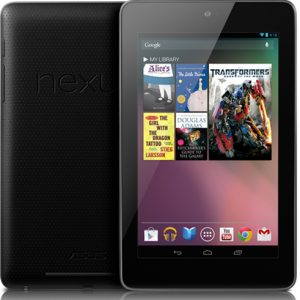 The cat is finally out of the bag. After weeks of speculation surrounding Google’s vaporous "7-inch Kindle killer", the Nexus 7 is now real. And as I suspected, the search giant’s new reference platform is nothing more than another in a long line of cheap, uninspiring Android tablets.
The cat is finally out of the bag. After weeks of speculation surrounding Google’s vaporous "7-inch Kindle killer", the Nexus 7 is now real. And as I suspected, the search giant’s new reference platform is nothing more than another in a long line of cheap, uninspiring Android tablets.
I mean, what is there to differentiate the Nexus 7 from similarly-sized tablets by Samsung or Acer? They all have the same crappy build quality, the same limited output options (no HDMI?) and the same tinny, poorly-placed speakers that have come to define the 7-inch Android tablet category.
Sure, the Nexus 7 has quad cores. But when it comes to mobile CPUs, more isn’t necessarily better, something Apple so aptly demonstrated with the new iPad. In fact, a good argument could be made that Google was forced to go with quad cores in order to achieve decent frame rates under the increasingly bloated Android 4.xx OS platform.
And speaking of Jellybean, Google could have thrown us enterprise IT types a bone and offered some improvements in device manageability. As it stands, we haven’t had to deal with many post-Android 2.3 devices because every 3.xx and non-phone 4.xx device has flopped big time -- and because market fragmentation keeps the Android OS upgrade cycle creeping along at a glacial pace.
However, if (and it’s a big if) the Nexus 7 takes off, we’ll likely see a deluge of users wanting to bring these things to work with them. And that means the onus is on Google to start thinking about making the platform more manageable. Never mind that the Nexus 7 is targeted at the Amazon Prime crowd. BYOD virtually guarantees that we’ll end up having to support it at some point in the near future.
By the way, am I the only one to notice how the 7-inch form factor has now become the ideal for portable media consumption and gaming? Back when RIM first shipped the Playbook, the company was slammed for creating a tablet that was "too small" (i.e. smaller than the iPad). A year later and, not only is 7-inch an accepted form factor, it’s now the size of choice for Google’s reference platform. Even Apple is rumored to be working on a 7-incher.
Funny how quickly the conventional wisdom can change. What hasn’t changed, however, is the fact that the Android marketplace still can’t seem to deliver a tablet solution that IT can embrace. What we want is a robust device that is portable, has excellent build quality and emphasizes security and manageability over bleeding edge specs and questionable software engineering.
Sadly, none of the current crop of Android devices can deliver, including the Nexus 7. To find these qualities you have to look beyond Google’s frat party of an ecosystem to a solution that IT organizations can fully embrace. In other words, you have to buy a Playbook.

